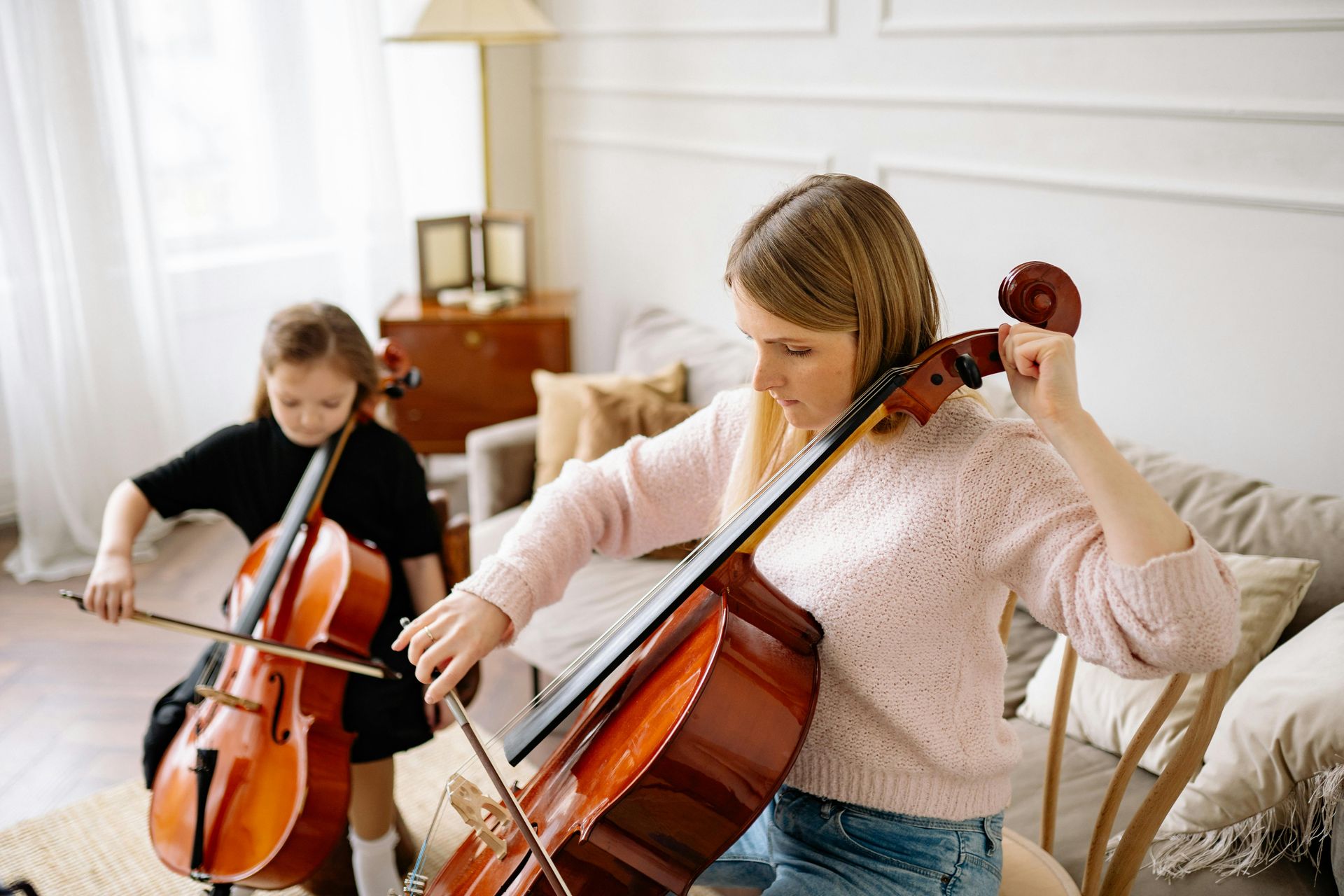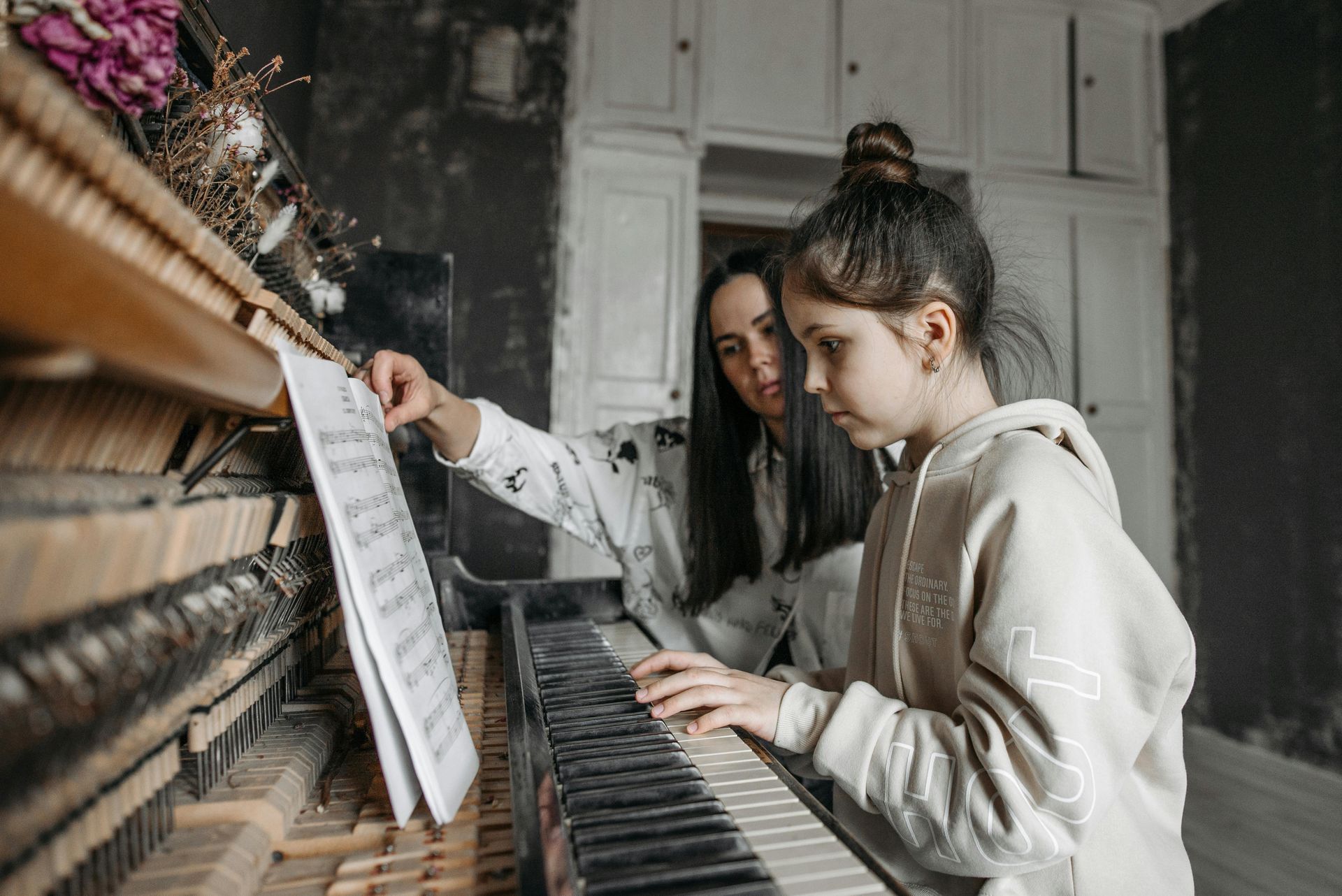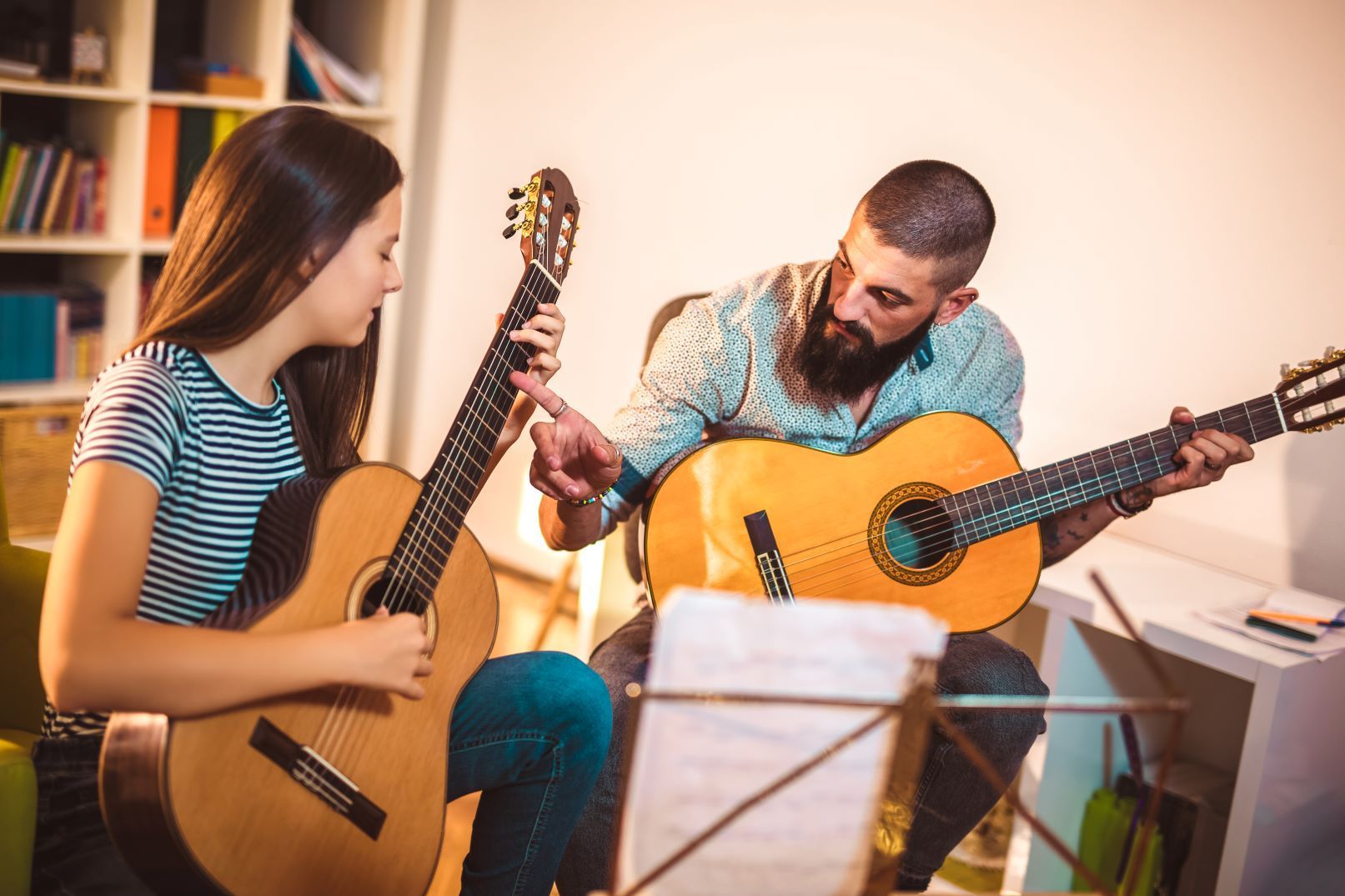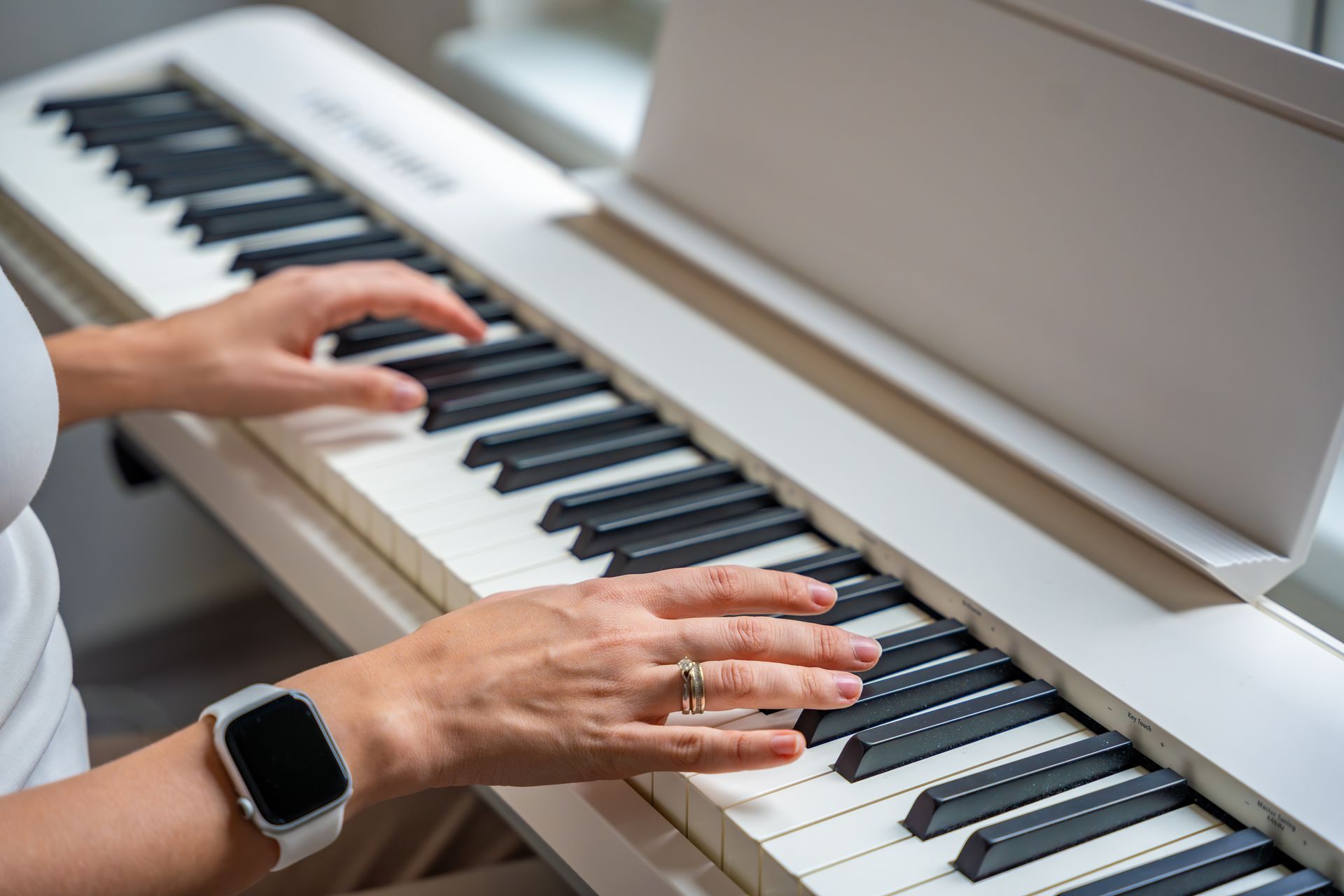A Beginner's Guide to Orchestra Class: What Parents Need to Know
A Beginner's Guide to Orchestra Class: What Parents Need to Know

Has your child signed up for orchestra class at their school? Orchestra is an exciting opportunity for kids to learn a new instrument and practice collaborating with others, all while training their brains! However, if you’ve never played an orchestra instrument yourself, it may be a little overwhelming for you as a parent.
You probably have dozens of questions. Do you need to buy an instrument for your child? What is rosin? How should they practice? Do they need private lessons? Thankfully, the experts at Crowne Music are here to help. We have compiled a complete guide to orchestra for parents and beginning students alike.
What is Orchestra Class?
In most schools, orchestra class is a string instrument ensemble. While professional orchestras often include other musical families, like woodwinds, brass, and percussion, schools usually separate those instruments into a different class: band. So, grade school orchestra class focuses on learning to play bowed string instruments.
Specific course requirements vary from school to school, but orchestra class typically has five main learning goals:
- The basics of playing a string instrument
- Level-appropriate music theory, like reading music and counting rhythms
- Ensemble coordination
- Musical interpretation
- Exposure to a variety of musical genres
Orchestra class consists primarily of full-group instruction, although the teacher may occasionally break up the class into sectionals (small groups of students who play the same instrument). Orchestra teachers may offer a bit of individualized guidance, but with so many students, the opportunities for one-on-one instruction are extremely limited. Orchestra classes culminate in public concerts that allow the students to showcase all their hard work (usually twice a year).
An Overview of Orchestra Instruments
Orchestra instruments come from the string instrument family, which includes violins as well as guitars and pianos. However, in a typical orchestra class, your child will only play a string instrument that uses a bow, such as a:
- Violin. The violin is one of the most famous orchestra instruments, so it’s very attractive for beginning students. The violin is the smallest and highest pitched string instrument, and it is held under the chin while playing.
- Viola. The viola is the violin’s lower cousin. It is played the same way, but violas are slightly larger than the violin, and its range is roughly a fifth below a violin’s.
- Cello. The cello is known for its rich sound quality. Twice the size of a violin, cello players lean the instrument against their body to play.
- Double bass. The double bass is the lowest bowed string instrument. Because it is so large, double bass players often stand to perform.
No matter what string instrument your orchestra student chooses, they will also need some accessories:
- A bow (most students start with a fiberglass horsehair bow, and as they advance, it may be worth investing in a wooden bow)
- Rosin, sticky tree resin that adds friction to the bow for easier, more expressive playing
- Practicing aids, including a music stand, music books, a tuner, and a metronome
It’s important that you invest in a well-made instrument and accessories, even if your student is a beginner. A high-quality instrument is essential to making sure your child gets the best sound—and the most enjoyment out of playing! But that doesn’t mean you have to break the bank. Some school orchestra classes actually provide students with instruments, and many music stores offer affordable rent-to-own programs.
Practicing String Instruments
For your child to succeed, they will need to practice their instrument. Learning an instrument is difficult, and consistent practice will make it easier for your student to see meaningful improvement.
Orchestra students typically practice in 3 main venues:
Orchestra Class
Orchestra classes focus on teaching music theory, emotional interpretation, and ensemble playing. Classroom practice helps your child learn how to work well with others and follow directions, and it also encourages them to explore a variety of musical concepts and genres. However, students rarely get individual attention, so extra practice time outside of the classroom is necessary to fully develop your child’s skills.
At-Home Practicing
If your student only plays during orchestra class, it will take them a long time to get better at their instruments. At-home practice is so important that many orchestra teachers make it a requirement. Think of it as homework! When your student practices on their own, they can hone their technical skills, but they also learn valuable traits like self-discipline, time management, and how to develop a growth mindset. As a parent, you should encourage your child to develop a consistent practice schedule; even 15 minutes a day can make a huge difference!
Private Lessons
The best way to improve as an orchestra student is to take private lessons. Orchestra teachers rarely have the time to offer individual instruction, and if your child feels lost practicing on their own, a private music teacher can offer some much-needed guidance. Investing in one-on-one instruction means that your child will advance more quickly in their instrument of choice, and they will be set up for long-term success.
A music teacher can provide personalized advice and expert support, as well as extra performance opportunities. If you think your child may want to pursue a career in music, private lessons are essential, but they are extremely worthwhile for all students, regardless of their goals. Music lessons have a variety of scientifically proven benefits, including improved cognitive capabilities, higher self-esteem, better mental health, and stronger relationship-building skills. Simply put, if you want your child to get the most out of their orchestra instrument, you should sign up for private lessons.
Violin, Viola, and Cello Lessons at Crowne Music
Crowne Music is your number one choice for orchestra lessons in York, PA. As York County’s premier music studio, we are proud to offer private, one-on-one violin lessons, viola lessons, and cello lessons with our expert faculty.
At Crowne Music, we take a personalized approach, tailoring each lesson to your student’s unique needs. No matter where your orchestra student is in their development, we will help them achieve their goals!
In addition to individual instructions, our violin, viola, and cello students also get to expand their performance opportunities through our Keystone Opera initiative. As a summer orchestra intern, Crowne Music students get the unique chance to play for a fully staged opera production featuring emerging professional singers.
Contact us today to learn more about our orchestra lessons!







